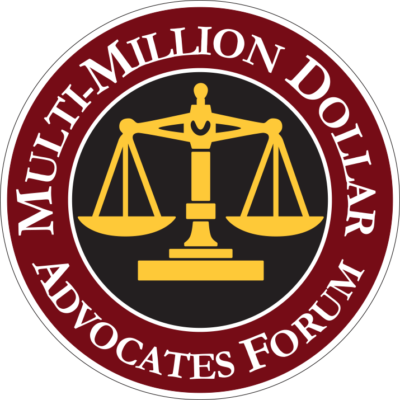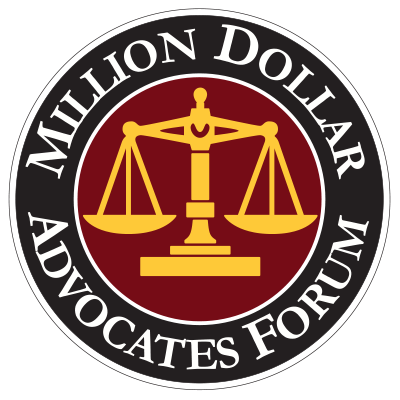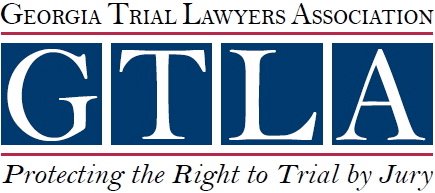Motorcycling offers a unique thrill and freedom that draws many to the open roads of Georgia. With its scenic routes and warm weather, the state is a popular destination for motorcyclists. However, the freedom of the road comes with significant risks, particularly when it comes to accidents. Motorcycle accidents can lead to severe injuries, complex legal challenges, and long-term consequences for those involved. Understanding Georgia motorcycle accident laws is crucial for any rider or driver in the state. This comprehensive guide delves into the specifics of these laws, helping you navigate the legal landscape if you find yourself involved in an accident.




Georgia’s Motorcycle Helmet Law
One of the most important laws for motorcyclists in Georgia is the helmet law. Georgia law requires all motorcyclists and their passengers to wear a helmet that complies with the standards set by the Department of Transportation. This law is not just a recommendation; it is a legal requirement. Helmets are proven to significantly reduce the risk of head injuries and fatalities in motorcycle accidents. Failing to wear a helmet not only increases the risk of injury but can also affect the outcome of any legal claims made after an accident.
If you are involved in a motorcycle accident and were not wearing a helmet, your ability to recover damages may be affected. Georgia follows a modified comparative negligence rule, which means that if you are found to be partially at fault for your injuries, your compensation may be reduced by the percentage of your fault. Not wearing a helmet could be considered negligence, potentially reducing the amount of compensation you could receive for your injuries.
Liability in Georgia Motorcycle Accidents
Determining liability in a motorcycle accident can be complicated. In Georgia, the party responsible for causing the accident is typically held liable for the damages. However, proving fault is not always straightforward. Georgia follows the rule of modified comparative negligence, which allows an injured party to recover damages as long as they are not more than 50% at fault for the accident. If you are found to be partially responsible, your compensation will be reduced by your percentage of fault.
For example, if you are found to be 20% at fault for the accident, you can still recover damages, but your award will be reduced by 20%. If you are found to be 51% or more at fault, you will be barred from recovering any compensation. This rule underscores the importance of having strong legal representation to help prove that the other party was primarily responsible for the accident.
The Role of Insurance in Motorcycle Accidents
Insurance plays a critical role in the aftermath of a motorcycle accident. Georgia law requires all drivers, including motorcyclists, to carry minimum liability insurance. The minimum coverage includes $25,000 for bodily injury per person, $50,000 for bodily injury per accident, and $25,000 for property damage. While these amounts may seem significant, they may not be sufficient to cover the full extent of damages in a serious motorcycle accident.
After an accident, you will likely deal with insurance companies, either your own or the other party’s. Insurance companies may attempt to minimize the amount they pay out in claims, so it is crucial to be cautious when communicating with them. Anything you say to an insurance adjuster can potentially be used to reduce your claim. Therefore, having an attorney handle communications with insurance companies can help protect your interests and ensure that you receive the compensation you deserve.
Understanding Damages in Motorcycle Accident Cases
In a motorcycle accident case, you may be entitled to recover various types of damages. These include economic damages, such as medical expenses, lost wages, and property damage, as well as non-economic damages like pain and suffering. In some cases, punitive damages may also be awarded if the at-fault party’s behavior was particularly reckless or egregious.
Medical expenses can be substantial, especially if you require long-term care or rehabilitation. Lost wages can also add up quickly, particularly if your injuries prevent you from returning to work for an extended period. Non-economic damages, while more difficult to quantify, are equally important. Pain and suffering, emotional distress, and loss of enjoyment of life are all factors that can be considered when calculating non-economic damages.
It is essential to document all expenses and impacts related to the accident thoroughly. This documentation will be crucial in supporting your claim and ensuring that you receive fair compensation for all the damages you have suffered.
The Importance of Legal Representation
Navigating the legal aftermath of a motorcycle accident can be overwhelming, particularly when dealing with injuries and recovery. Having knowledgeable legal representation can make a significant difference in the outcome of your case. An attorney can help gather evidence, interview witnesses, negotiate with insurance companies, and represent your interests in court if necessary.
In Georgia, motorcycle accident cases can be particularly complex due to the state’s modified comparative negligence rule, the need to prove fault, and the intricacies of insurance claims. An attorney with experience in motorcycle accident cases will understand the nuances of these laws and will be able to build a strong case on your behalf.
Additionally, time is of the essence in these cases. Georgia has a two-year statute of limitations for personal injury claims arising from motorcycle accidents. This means you have two years from the date of the accident to file a lawsuit. If you miss this deadline, you may lose your right to recover damages. Consulting with an attorney as soon as possible after the accident can help ensure that all necessary steps are taken within the required time frame.
Hiring a Personal Injury Attorney How Long Will a Personal Injury Case Take?Related Videos
Common Causes of Motorcycle Accidents in Georgia
Understanding the common causes of motorcycle accidents can help you avoid them and may be relevant in determining fault in an accident. Some of the most common causes include distracted driving, speeding, failure to yield, and driving under the influence of alcohol or drugs. Road conditions, weather, and visibility issues can also contribute to accidents.
Distracted driving is a significant problem on Georgia roads. Whether it’s texting, talking on the phone, or simply not paying attention, distracted drivers pose a serious risk to motorcyclists. Because motorcycles are smaller and less visible than other vehicles, drivers who are not fully focused on the road are more likely to miss seeing a motorcycle, leading to potentially catastrophic accidents.
Speeding is another major factor in motorcycle accidents. Both motorcyclists and other drivers who exceed the speed limit increase the likelihood of an accident. High speeds reduce reaction times and make it more difficult to navigate around obstacles or avoid a collision. Speeding also increases the severity of injuries in the event of an accident.
Failure to yield is a common cause of accidents at intersections. Many drivers fail to recognize the right-of-way of motorcyclists, leading to dangerous collisions. Intersections are particularly hazardous for motorcyclists, who are more vulnerable to serious injuries in a crash.
Driving under the influence of alcohol or drugs is a leading cause of accidents in Georgia. Impaired drivers are a significant danger to all road users, including motorcyclists. Even small amounts of alcohol can impair judgment and reaction times, increasing the risk of an accident.
What to Do After a Motorcycle Accident in Georgia
The moments following a motorcycle accident can be chaotic and confusing. However, the actions you take immediately after the accident can have a significant impact on your ability to recover damages. If you are involved in a motorcycle accident, it is important to remain calm and take the following steps to protect your rights and interests.
First, ensure your safety and the safety of others. If you are able, move to a safe location away from traffic. Check yourself and others for injuries and call 911 to report the accident and request medical assistance if needed. Even if you do not feel seriously injured, it is important to seek medical attention, as some injuries may not be immediately apparent.
Next, document the accident scene. If you are able, take photographs of the scene, including the positions of the vehicles, damage to the motorcycle and other vehicles, skid marks, road conditions, and any visible injuries. This documentation can be crucial evidence in your case.
Exchange information with the other driver(s) involved in the accident. This includes names, contact information, driver’s license numbers, insurance information, and vehicle registration details. Avoid discussing the accident or admitting fault; simply exchange the necessary information.
If there are any witnesses to the accident, obtain their contact information as well. Witnesses can provide valuable testimony to support your version of events and help establish fault.
Report the accident to your insurance company as soon as possible. Be cautious when speaking with insurance adjusters, and avoid making any statements that could be used against you. It is advisable to consult with an attorney before providing a recorded statement or signing any documents from the insurance company.
If you have been involved in a motorcycle accident in Georgia, the legal team at Princenthal, May & Wilson, LLC is here to help. With extensive experience in handling motorcycle accident cases, we understand the challenges you face and are committed to providing the guidance and representation you need to pursue the compensation you deserve. Our firm will work diligently to investigate your case, gather evidence, and advocate on your behalf, allowing you to focus on your recovery. To learn more about how we can assist you, contact Princenthal, May & Wilson, LLC today.





